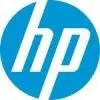Starting at $250 Per License
View PricingOverview
What is Oracle GoldenGate?
Oracle GoldenGate is database management software for data integration, and availability support for heterogeneous databases.
Recent Reviews
Awards
Products that are considered exceptional by their customers based on a variety of criteria win TrustRadius awards. Learn more about the types of TrustRadius awards to make the best purchase decision. More about TrustRadius Awards
Pricing
Data Integration
$250.00
Cloud
Per License
Entry-level set up fee?
- No setup fee
For the latest information on pricing, visithttps://cloud.oracle.com/en_US/goldenga…
Offerings
- Free Trial
- Free/Freemium Version
- Premium Consulting/Integration Services
Product Demos
Oracle Goldengate demo
YouTube
Webinar On Oracle Goldengate Different Types of Architecture and Installation of Goldengate_31st May
YouTube
2017 05 19 22 04 Oracle Goldengate Demo
YouTube
Webinar On Oracle Goldengate Different Types of Architecture and Installation of Goldengate_14 June
YouTube
Oracle 12c Golgen Gate Essentials Training - DEMO
YouTube
Configuring Integrated Extract and Integrated Replicat Using Oracle GoldenGate 12c on Linux
YouTube
Product Details
- About
- Integrations
- Competitors
- Tech Details
- Downloadables
- FAQs
What is Oracle GoldenGate?
Oracle GoldenGate products offer real-time data integration, transactional data replication, and data comparison across heterogeneous systems. Oracle GoldenGate enables:
-Real-time business intelligence and stream analytics for improved business insight
-Query offloading to maximize OLTP performance
-Zero-downtime data migration, disaster recovery, and active-active database synchronization for continuous availability
Datasheet - https://www.oracle.com/us/products/middleware/data-integration/oracle-goldengate-ds-2030490.pdf
Datasheet (Stream Analytics) https://www.oracle.com/us/products/middleware/data-integration/oracle-stream-analytics-ds-4478221.pd...
Analyst whitepaper https://www.oracle.com/us/products/middleware/data-integration/oracle-goldengate-ds-2030490.pdf
Documentation
Video Oracle GoldenGate Cloud Service - Get an overview of this cloud based real-time data integration and replication service that provides quick, easy, accurate and safe data movement to the cloud. https://youtu.be/liBgUwHgVew
Oracle GoldenGate Video
GoldenGate Cloud for real-time replication
Oracle GoldenGate Integrations
Oracle GoldenGate Competitors
Oracle GoldenGate Technical Details
| Deployment Types | Software as a Service (SaaS), Cloud, or Web-Based |
|---|---|
| Operating Systems | Unspecified |
| Mobile Application | No |
Oracle GoldenGate Downloadables
Frequently Asked Questions
Oracle GoldenGate is database management software for data integration, and availability support for heterogeneous databases.
Azure Data Factory, AWS Database Migration Service, and Informatica Cloud Data Integration are common alternatives for Oracle GoldenGate.
Reviewers rate Oracle Implementation Satisfaction highest, with a score of 9.7.
The most common users of Oracle GoldenGate are from Enterprises (1,001+ employees).






